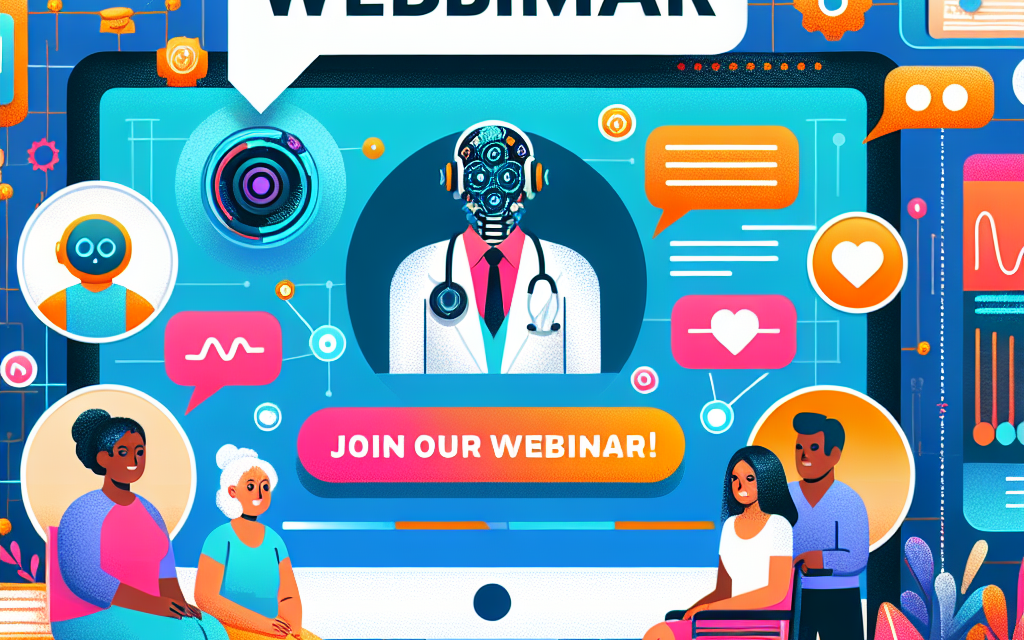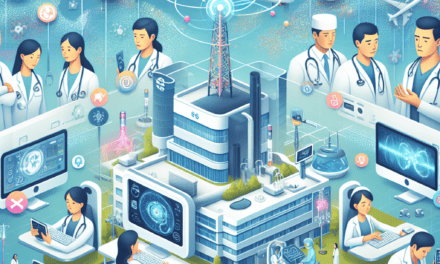Enhancing Patient Experiences with AI-Powered Contact Centers: Join Our Webinar!
In the rapidly evolving landscape of healthcare, patient experience has emerged as a critical component of quality care. As healthcare providers strive to improve patient satisfaction, the integration of technology, particularly artificial intelligence (AI), has become a game-changer. AI-powered contact centers are at the forefront of this transformation, offering innovative solutions that enhance communication, streamline processes, and ultimately improve patient outcomes. This article delves into the various aspects of AI-powered contact centers in healthcare, exploring their benefits, challenges, and real-world applications. We invite you to join our upcoming webinar to learn more about how these technologies can revolutionize patient experiences.
1. Understanding AI-Powered Contact Centers
AI-powered contact centers leverage advanced technologies such as machine learning, natural language processing, and data analytics to enhance customer service operations. In the context of healthcare, these systems are designed to manage patient interactions more efficiently and effectively.
Key features of AI-powered contact centers include:
- Automated Responses: AI chatbots can handle routine inquiries, providing instant responses to common questions about appointments, medications, and insurance.
- Data-Driven Insights: AI systems analyze patient data to identify trends and preferences, enabling personalized communication.
- 24/7 Availability: Unlike traditional contact centers, AI systems can operate around the clock, ensuring patients receive assistance whenever they need it.
- Seamless Integration: AI contact centers can integrate with electronic health records (EHR) and other healthcare systems, streamlining workflows.
- Enhanced Security: AI technologies can help safeguard patient information through advanced encryption and authentication methods.
By automating routine tasks and providing real-time support, AI-powered contact centers free up healthcare professionals to focus on more complex patient needs, ultimately enhancing the overall patient experience.
2. The Impact of AI on Patient Engagement
Patient engagement is a crucial factor in achieving positive health outcomes. Engaged patients are more likely to adhere to treatment plans, attend follow-up appointments, and communicate openly with their healthcare providers. AI-powered contact centers play a significant role in fostering this engagement.
Some ways AI enhances patient engagement include:
- Personalized Communication: AI systems can analyze patient data to tailor messages and reminders based on individual preferences and health conditions.
- Proactive Outreach: AI can identify patients who may be at risk of non-compliance and initiate outreach efforts to encourage adherence to treatment plans.
- Feedback Mechanisms: AI-powered surveys and feedback tools can gather patient insights, allowing healthcare providers to make data-driven improvements.
- Educational Resources: AI can provide patients with relevant educational materials based on their specific health needs, empowering them to take charge of their health.
- Streamlined Appointment Scheduling: AI systems can facilitate easy appointment scheduling, reducing wait times and improving access to care.
For instance, a study published in the Journal of Medical Internet Research found that patients who received personalized reminders via AI systems were 30% more likely to attend their scheduled appointments compared to those who did not receive such reminders. This demonstrates the tangible impact of AI on patient engagement and adherence.
3. Enhancing Operational Efficiency in Healthcare
Operational efficiency is vital for healthcare organizations to deliver high-quality care while managing costs. AI-powered contact centers contribute significantly to improving operational workflows.
Key benefits of AI in operational efficiency include:
- Reduced Call Volume: By automating routine inquiries, AI can significantly decrease the volume of calls that human agents need to handle, allowing them to focus on more complex issues.
- Faster Response Times: AI systems can provide instant responses to patient inquiries, reducing wait times and improving overall satisfaction.
- Resource Allocation: AI analytics can help organizations identify peak call times and allocate resources accordingly, ensuring that staffing levels meet demand.
- Cost Savings: By reducing the need for extensive human staffing and minimizing errors, AI can lead to significant cost savings for healthcare organizations.
- Improved Data Management: AI systems can efficiently manage and analyze large volumes of patient data, providing actionable insights for decision-making.
A case study from a large hospital network demonstrated that implementing an AI-powered contact center reduced call handling times by 40% and improved patient satisfaction scores by 25%. These improvements not only enhance the patient experience but also contribute to the overall efficiency of healthcare operations.
4. Addressing Challenges and Concerns
While the benefits of AI-powered contact centers are substantial, there are also challenges and concerns that healthcare organizations must address. Understanding these challenges is crucial for successful implementation.
Common challenges include:
- Data Privacy and Security: Protecting patient data is paramount. Healthcare organizations must ensure that AI systems comply with regulations such as HIPAA and implement robust security measures.
- Integration with Existing Systems: Integrating AI solutions with legacy systems can be complex and may require significant investment in technology and training.
- Patient Trust: Some patients may be hesitant to interact with AI systems, preferring human contact. Building trust in AI technologies is essential for widespread adoption.
- Bias in AI Algorithms: AI systems can inadvertently perpetuate biases present in training data, leading to disparities in care. Continuous monitoring and adjustment of algorithms are necessary to mitigate this risk.
- Cost of Implementation: While AI can lead to long-term savings, the initial investment in technology and training can be a barrier for some organizations.
To address these challenges, healthcare organizations should prioritize transparency, invest in staff training, and engage patients in the development and implementation of AI solutions. By fostering a culture of collaboration and continuous improvement, organizations can successfully navigate the complexities of AI integration.
5. Future Trends in AI-Powered Contact Centers
The future of AI-powered contact centers in healthcare is promising, with several emerging trends poised to shape the landscape. Staying informed about these trends is essential for healthcare organizations looking to remain competitive and enhance patient experiences.
Key trends include:
- Increased Use of Voice Assistants: Voice-activated AI assistants are becoming more prevalent, allowing patients to interact with healthcare systems using natural language.
- Advanced Predictive Analytics: AI systems will increasingly leverage predictive analytics to anticipate patient needs and proactively address potential issues.
- Integration with Telehealth Services: As telehealth continues to grow, AI-powered contact centers will play a crucial role in managing virtual consultations and follow-ups.
- Enhanced Personalization: Future AI systems will utilize more sophisticated algorithms to deliver highly personalized experiences based on individual patient data.
- Focus on Mental Health Support: AI-powered contact centers will increasingly provide resources and support for mental health, addressing the growing demand for mental health services.
For example, a recent report from McKinsey & Company highlighted that healthcare organizations that adopt advanced AI technologies could see a 30% increase in operational efficiency and a 20% improvement in patient satisfaction within the next five years. This underscores the importance of staying ahead of the curve in adopting AI solutions.
Conclusion
AI-powered contact centers represent a transformative opportunity for healthcare organizations to enhance patient experiences. By leveraging advanced technologies, these systems improve patient engagement, operational efficiency, and overall satisfaction. However, organizations must also address challenges related to data privacy, integration, and patient trust to fully realize the benefits of AI.
As we look to the future, the trends in AI-powered contact centers indicate a continued evolution of patient care, with a focus on personalization, predictive analytics, and mental health support. We invite you to join our upcoming webinar to explore these topics in greater detail and learn how your organization can harness the power of AI to enhance patient experiences. Together, we can shape the future of healthcare and ensure that patients receive the high-quality care they deserve.





